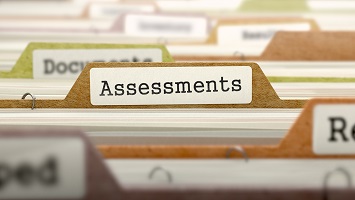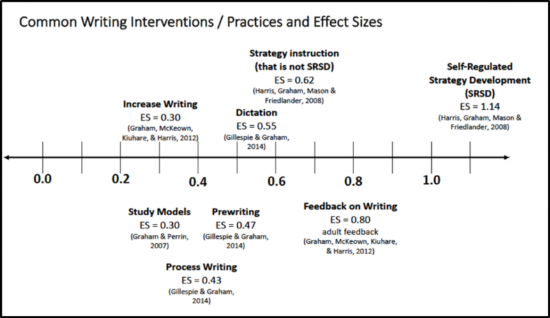New York State is on a mission to improve outcomes of students with disabilities and the State Systemic Improvement Plan (SSIP) is our blueprint for achieving that. “The SSIP is a multi-year, achievable plan developed by NYSED, in consultation with stakeholders, that is designed to increase the capacity of school districts to implement, scale up, and sustain evidence-based practices to improve outcomes for students with disabilities.” (NYSED OSE, 2017) The evidence-based practice that NYS is choosing to implement through the SSIP is the Multi-Tiered Systems of Support (MTSS) framework. MTSS is a decision-making framework to guide schools and districts in selecting and implementing evidence-based practices for improving students’ academic, behavioral, and social-emotional outcomes (McIntosh & Goodman, 2016).
The Lower Hudson Regional Partnership Center has been tapped to help develop and implement the SSIP. The initial pilot is occurring in a transformation zone of 15 schools across the state, and six of the 15 schools are in Lower Hudson districts —Carmel, Green Chimneys, North Rockland, and Peekskill. The RSE-TASC is collaborating with, and providing professional development to, these schools, and by June 2019 these schools and districts will be sharing the model practices they have implemented so they can be scaled up across the state. This past year, the SSIP Implementation Design Team, along with expert-member work groups, reviewed research and models used in other states to define and operationalize a MTSS, data systems, and professional development structures for New York state. Work group members were selected for their expertise in areas such as cultural responsive education, family and community engagement, Response to Intervention (RtI), Positive Behavioral Interventions and Supports (PBIS), and professional development. Work group members included expert representatives from our region’s schools: Janet Warden (Carmel), Toni DeMato (Green Chimneys), Letitia Payne & Tim Scholten (Ossining), and Mary Foster (Peekskill).
Thanks to the efforts of the SSIP work groups, we now have a well-informed draft of our NYS MTSS model. The MTSS Work Group identified these six underlying values and guiding principles, which promote consistency, integrity, and sustainability:
- An unwavering focus on student growth
- A commitment to cultural responsiveness and equity
- Engagement of all stakeholders
- A whole child/whole school approach
- Proactive problem-solving
- Full access for every student.
Our NYS MTSS model is being finalized as this goes to press, and we will have more updates in the year to come.
In August, pilot schools and SSIP partners will convene a leadership institute to begin the next stage of MTSS implementation. One foci of the institute will be facilitating an alignment process to help school teams identify what they are already implementing, and how implementation is going as it pertains to fidelity and outcomes; i.e., are we implementing it the way we are supposed to, and are we seeing student growth? We are engaging in this process because we know two important facts: (a) schools are often implementing more initiatives/practices than they can do well (Sugai & Horner, 2006), and (b) one of the biggest challenges schools face is that new initiatives compete for resources with previous initiatives, and/or they contradict existing resources (McIntosh et al., 2013).
You can read about this alignment process in pages 1-6 of this month’s school tool, Technical Guide for Alignment of Initiatives, Programs and Practices in School Districts. This tool is endorsed by the Office of Special Education Programs, and its alignment structure comes from The National Implementation Research Network (NIRN). Currently, it is being utilized to align evidence-based practices in School Mental Health into existing PBIS, and now MTSS, frameworks at the school, district, regional, and state levels (Perales, Pohlman, Eber, & Barrett, 2017).
References:
McIntosh, K., & Goodman, S. (2016). Integrated multi-tiered systems of support: Blending RTI and PBIS. New York: The Guilford Press.
McIntosh, K., Mercer, S. H., Hume, A. E., Frank, J. L., Turri, M. G., & Mathews, S. (2013). Factors related to sustained implementation of schoolwide positive behavior support. Exceptional Children, 79(3), 293–311.
New York State Education Department, Office of Special Education (2017). New York State systemic improvement plan: Phase III. Retrieved from NYSED website: http://www.p12.nysed.gov/specialed/spp/documents/new-york-state-systemic- improvement-plan.pdf
Perales, K., Pohlman, K., Eber, L., & Barrett, S. (2017, December). PBIS forum in brief: Aligning and integrating mental health and PBIS to build priority for wellness. Mental health integration roundtable dialogue. Symposium conducted at the 2017 PBIS Leadership Forum of OSEP TAC on PBIS, Chicago. Retrieved from https://www.pbis.org/Common/Cms/files/Forum17_Presentations/RDQ%202%20Brief% 20-%20Mental%20Health.pdf
Sugai, G., & Horner, R. R. (2006). A promising approach for expanding and sustaining school- wide positive behavior support. School Psychology Review, 35(2), 245-259.




 Data-Driven Decision-Making
Data-Driven Decision-Making  Increasing Post-School Success through Interagency Collaboration
Increasing Post-School Success through Interagency Collaboration  How Can We Improve Deeper Learning for Students with Disabilities?
How Can We Improve Deeper Learning for Students with Disabilities?  Positive Classroom Management: Creating an Environment for Learning
Positive Classroom Management: Creating an Environment for Learning  Self-Determination Skills Empower Students of All Ages
Self-Determination Skills Empower Students of All Ages  Fidelity of Implementation: What is it and Why does it Matter?
Fidelity of Implementation: What is it and Why does it Matter?  Rethinking Classroom Assessment
Rethinking Classroom Assessment  A Three-Step Approach to Identifying Developmentally Appropriate Practices
A Three-Step Approach to Identifying Developmentally Appropriate Practices  Transforming Evidence-Based Practices into Usable Innovations: A Case Study with SRSD
Transforming Evidence-Based Practices into Usable Innovations: A Case Study with SRSD